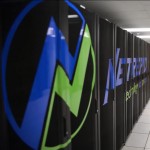What Is Colocation?
 Colocation is the practice of housing your servers in an offsite data center facility. The data center provides access to cage space, electrical power, cooling, networking equipment, and access to a variety of telecom and internet service providers at a monthly rental fee. In addition to these standards, many data centers that provide colocation services are equipped with advanced physical security, such as biometric locks. While costs for colocation vary by service provider, rental fees for colocation services are generally less expensive and less complex than in-house alternatives. In very standard terms, colocation facilities act as a ‘hotel’ for servers and other critical technology dependent upon an internet connection.
Colocation is the practice of housing your servers in an offsite data center facility. The data center provides access to cage space, electrical power, cooling, networking equipment, and access to a variety of telecom and internet service providers at a monthly rental fee. In addition to these standards, many data centers that provide colocation services are equipped with advanced physical security, such as biometric locks. While costs for colocation vary by service provider, rental fees for colocation services are generally less expensive and less complex than in-house alternatives. In very standard terms, colocation facilities act as a ‘hotel’ for servers and other critical technology dependent upon an internet connection.
We do it better. LEARN HOW with our FREE PDF.
Why Do Businesses Contract With A Colocation Facility?
There are many reasons for companies to contract with a colocation facility:
- Quality service reliability for online initiatives
- Disaster preparation and protection
- Flexibility and security for online or network initiatives
- Cost management and savings
- Access to IT expertise
- 24/7 infrastructure support
Benefits Of Using Data Centers For Colocation
One good example of a data center is the NCDC, or the National Climatic Data Center. It stores data pertaining to current and archived weather information. Theirs consists of a private data center that can be accessed within their organization, as well as a public data center that can be accessed online by anyone. Sometimes, these centers are referred to as computer closets or server rooms. In the telecommunications and IT worlds, as well as other technology industries, a these centers are often synonymous with a NOC, also known as a network operations center. They are areas within the company with restricted access to automated systems. These systems are used to constantly monitor network performance, web traffic and server activity. There are numerous benefits for having your own dedicated data center. Here are four of the main essential benefits:
- Infrastructure Visibility – It can be very time consuming to determine exactly which server hosts which storage components and networks. Data centers provide infrastructure visibility so you can easily track server resources, storage capacity, performance and usage. Its capabilities allows you to monitor the physical and virtual server configurations at-a-glance.
- Storage Allocation – Data centers help you make better decisions for allocating storage capacity. This makes it easier to manage your company’s data, as well as the center’s infrastructure. You can provision your systems to preserve the storage capacity you currently possess by allocating less or more capacity to each virtual machine.
- Risk Reduction – Your data center can provide efficiency by reducing risks caused by human error. Netrepid Data Center products helps you to automate repetitive administrative tasks that can be error prone. Some of these tasks include: [unordered_list style='circle' number_type='circle_number' animate='no' font_weight=‘']
- storage monitoring
- data migrations
- storage utilization
- storage server reporting
- Increased Application Efficiency and Availability – The Netrepid Data Center puts all of your application information right at your fingertips. This increases efficiency by helping you put the proper applications on the correct hardware. It also helps you to ensure that each individual application is using the correct resources that have been assigned to it. This increases each application’s availability, while lowering your over costs.



